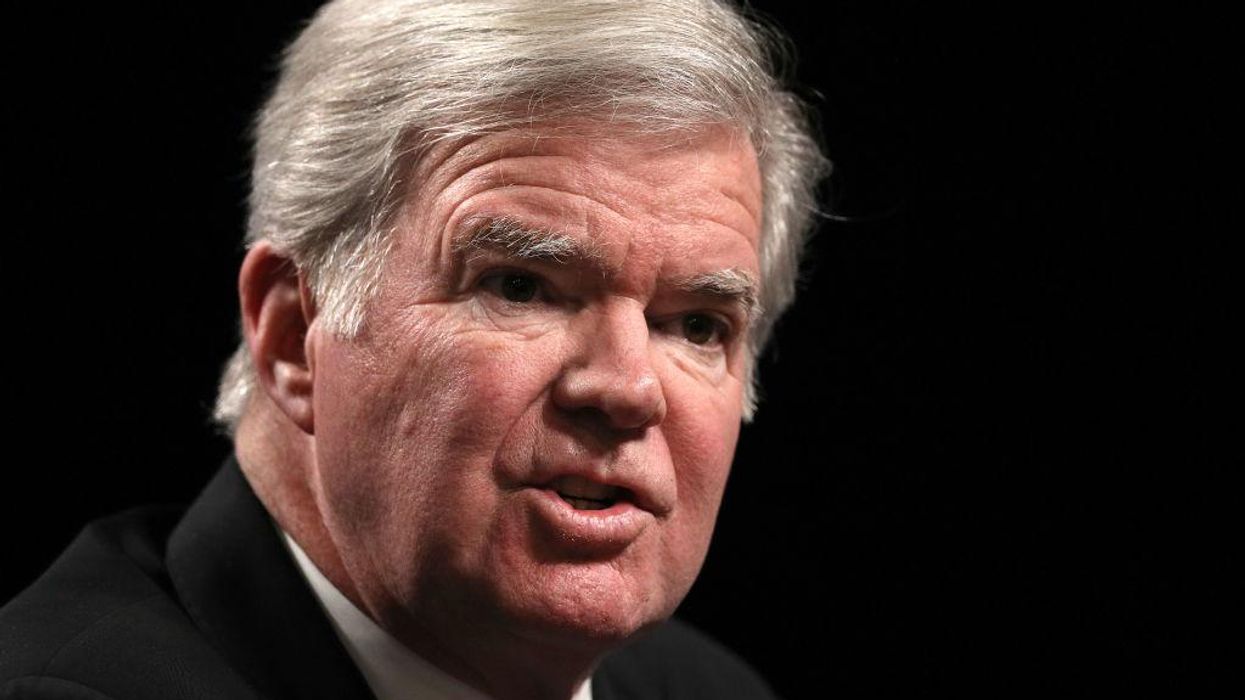
NCAA President Mark Emmert (Maxx Wolfson/Getty Images)

NCAA President Mark Emmert on Wednesday faced questions from Sen. Ted Cruz over his organization's policy on transgender athletes and fairness in women's sports.
Emmert appeared before the Senate Commerce Committee to testify as an expert witness during a hearing on college athlete compensation. But when it was Cruz's turn to ask questions, the senator from Texas pressured the NCAA president on transgender issues and his organization's threat to punish states that pass laws that prohibit male athletes who identify as transgender from competing in women's sports.
"I am concerned about just how political the NCAA has gotten on the question of transgender athletes," Cruz said.
The National Collegiate Athletic Association has threatened to pull championship collegiate games from states that enact laws barring transgender athletes from playing on teams associated with their self-declared gender identity.
In a statement issued in April, the organization announced it "firmly and unequivocally supports the opportunity for transgender student-athletes to compete in college sports" and that "when determining where championships are held, NCAA policy directs that only locations where hosts can commit to providing an environment that is safe, healthy and free of discrimination should be selected."
"That was a not remotely subtle threat for the NCAA to target and boycott any states where legislatures are acting to protect girls sports and women's sports," charged Cruz.
"Now, it used to not be controversial to observe that there are biological differences between boys and girls, and when it comes to athletics, there are, can be significant physical advantages for those who are born biologically male in terms of strength and size. And that's why we have girls sports and boys sports and men's sports and women's sports in organized athletics. And the science continues to demonstrate that," Cruz continued.
"Why does the NCAA think it is fair to girls or to women competing in sports to expect them to compete against individuals who were born biologically male? And is the NCAA concerned about some of the results we're seeing, for example, Connecticut high school track where biological males are setting record after record after record in girls track and winning the championships," he asked.
Sen. Ted Cruz to NCAA President Mark Emmert: \u201cIt used to not be controversial to observe that there are biological differences between boys and girls.... There can be significant physical advantages for those who are born biologically male in terms of strength and size...\u201dpic.twitter.com/UpTmCJIocr— Steve Guest (@Steve Guest) 1623256836
"Is that fair to the girls and to the women who had been competing in the sports?"
"Senator, first of all, as you point out, this is a very challenging issues and the member schools of the association have worked very hard to try and not make it a political issue," Emmert replied, noting that the NCAA has attempted to align "as closely as possible" with what the USA and International Olympics policy is.
He explained that to strike a "balance" between what is "inclusive" and what is "fair," "student athletes in NCAA competition who are transgendered women, for example, are allowed to compete but only after they've been under a doctor's care for no less than a year and have had testosterone suppression treatments that have lowered their testosterone levels to be functional equivalent of a woman."
Emmert added that in the example Cruz cited, the transgender athletes in question "would not have been allowed to compete in NCAA championships."
"We've been constantly trying to stay abreast of the science and make sure that we're striking a balance where we don't put women athletes at a disadvantage while still trying to provide an inclusive environment," Emmert said.